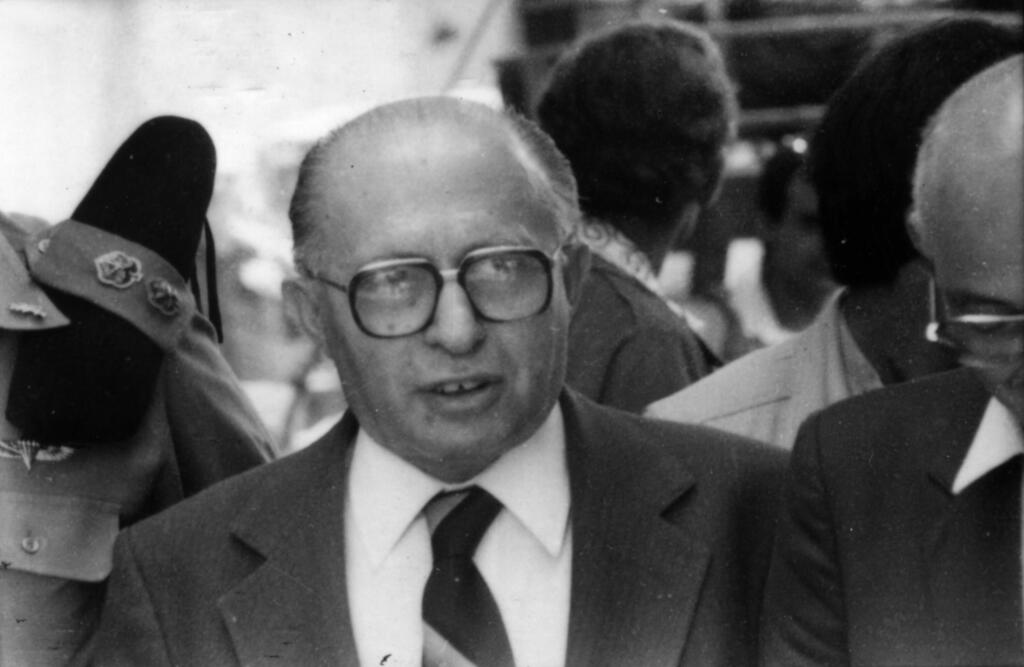Getting your Trinity Audio player ready...
rBack in May, I met two senior officials at the Prime Minister’s Office for a talk. We discussed the Prime Minister’s Residence on Jerusalem's Balfour St. and why didn't former prime minister Naftali Bennett move there even after the issue made headlines.
They cited a laundry list of hurdles put up by senior officials in the office, endless strikes at the Defense Ministry, lack of luck and even their own mistakes.
But the residence on Balfour St. isn’t a just single building, it’s an entire complex, so why won’t Bennett move into one of the other buildings, I wondered.
They looked at each other and at me, dumbfounded. “There are no other buildings in Balfour,” replied one of them.
I offered to go there, with or without them. Maybe I’ll show them something missed. They rejected my offer outright.
On the day Prime Minister Yair Lapid took Bennett's place in power, suddenly they found a room for Lapid in Balfour and he quickly settled in.
In one move, Lapid managed to silence the critics and mark his territory. He won’t be staying there much. Former prime minister Ariel Sharon didn’t stay there much either, despite having a spacious bedroom on the second floor. Regardless, whoever is condemned to sleep alone in a guarded, fortified complex feels like a prisoner.
The issue at hand isn't the prime minister but his subordinates: not everything they say with complete confidence is an immutable truth. Sometimes they don't check things to the end, sometimes they cut corners, sometimes they cherry-pick facts they think better serve their superior, and sometimes they simply mix up reality and fiction.
This is all the more sensitive when we talk about defense. Lapid became prime minister after being present at security consultations for a whole year. He's convinced that he has a firm grasp of the material, which is both true and false at the same time.
There is a glaring difference between someone who sits through a briefing and then goes back to tend to his business and someone who must make decisions immediately.
His predecessors Yitzhak Rabin, Ehud Barak and Ariel Sharon, who got their start in military command before coming into politics, were adamant about getting down to the smallest detail. Their experience thought them about their own limitations and the importance of skepticism.
Menachem Begin represented the complete opposite.
Lately, the debate over the First Lebanon War resumed. A war that started with Begin's solemn commitment to keep terrorists 40 kilometers from the Israeli border and not an inch further.
Truth is the IDF planned from the get-go to push north all the way to Beirut and joint forces with the Christian militias.
In a new book, 1982 – Lebanon The Road to War, historian Dr. Yigal Kipnis sheds light on how the defense establishment's top brass conspired with the Christian leadership in Lebanon
Begin was the fish that took the bait. He was called upon to save the Christians even though they neither needed nor deserved saving. He heaped overwrought praise upon his commanders and let them run amok. And we know how that ended.
The debate revolves around this 40-kilometer buffer. Was Begin aware that the IDF was eyeing Beirut while claiming the opposite in public? Did he lie?
"Sure he knew and sure he lied," say Kipnis and the commanders in that war. "Begin didn’t lie", says then-cabinet secretary Dan Meridor to the contrary. "He didn’t know."
Meridor quotes an unfortunate line uttered by Begin: “I knew everything – some in advanced and some only after.” A prime minister who loses control over critical maneuvers in war shouldn’t be prime minister.
This all ties back to Lapid. In his speech on Saturday, he mentioned two individuals in whose footsteps he would like to follow — David Ben Gurion and Begin, whom he called “the two most important prime ministers we had.”
There are some things he can learn from Begin, but it would be best not to take his example in dealing with Israel’s military and intelligence services.
He better learn from Rabin and Yitzhak Shamir — trust, but verify.
The people at the top of the defense establishment nowadays are very competent and undoubtedly dedicated to Israel. Their credibility is higher than that of politicians.
However, they too have interests, egos and impulses that require restraint. Not everything they offer is sacrosanct.
Lapid will face throughout the election campaign claims he does not possess the experience or courage required to take responsibility for military operations. His opponents will try to push to make hasty, irresponsible moves.
This is the bane of every prime minister who does not come from the right. The truth is that there is no right or left when it comes to military action, certainly not in a caretaker government.
What do we have? Seriousness and carelessness, and I hope Lapid would opt for the former.





